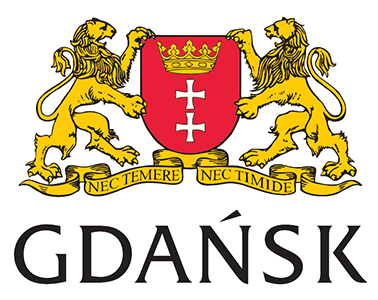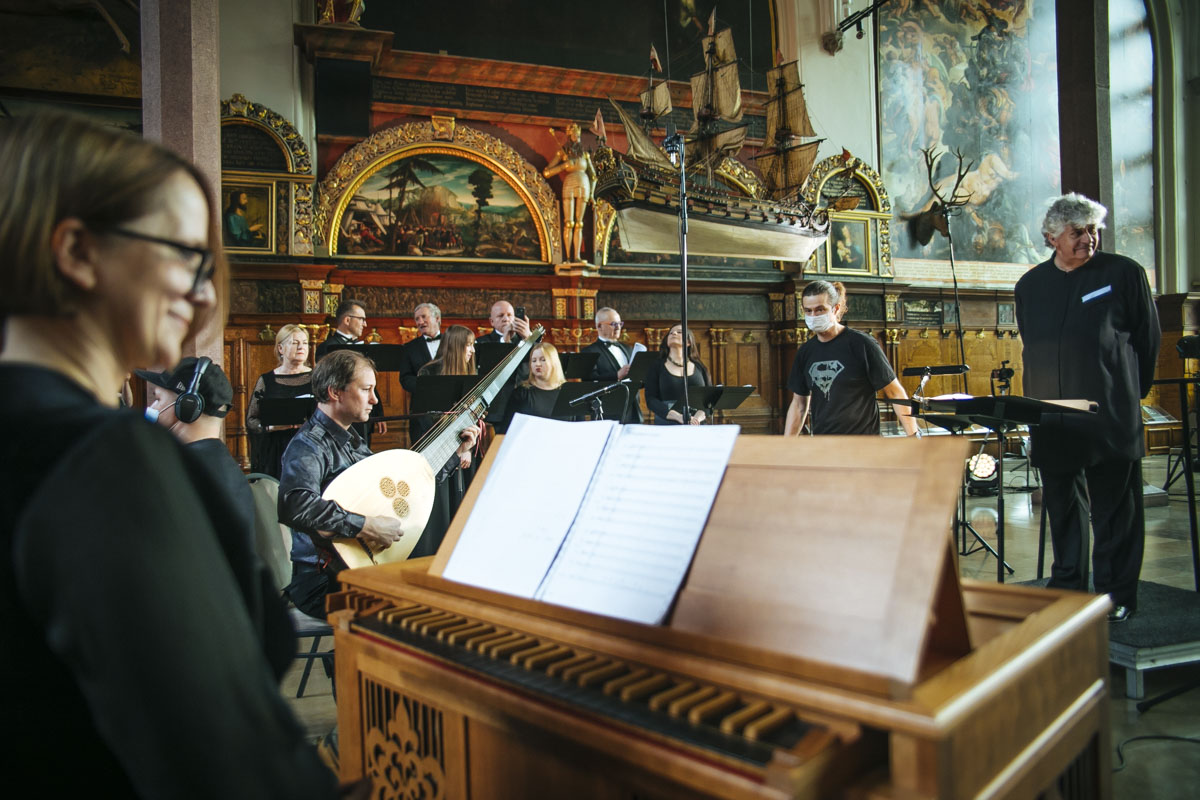Live broadcast of the concert from the Dwór Artusa in Gdańsk is available (free of charge) at www.nck.pl , www.gdansk.pl, www.polskichorkameralny.pl, on April 24, 2021 (Saturday) at 6.00 pm.
Performers:
Polski Chór Kameralny / Polish Chamber Choir
Jan Čižmář (Czech Republic) - theorbo
Witosława Frankowska – positive organ
Jan Łukaszewski - conductor
Zuzanna Bodak - child
Tomasz Podsiadły - direction
Barbara Przybyszewska-Jarmińska (Professor, Institute of Arts, Polish Academy of Sciences) - narration
Programme:
Jerzy Liban - Ortus de Polonia
Wacław from Szamotuły - Ego sum pastor bonus
Wacław from Szamotułu - Nunc scio vere
Mikołaj Zieleński - Motetto de S. Adalberto: Per merita Sancti Adalberti
Mikołaj Zieleński - Motetto de S. Stanislao: Ortus de Polonia
Andrzej Hakenberger - Veni Sancte Spiritus (the composer spent the last 20 years of his life in Gdańsk, serving as maestro di cappella at the Church of the Holy Virgin Mary)
secunda pars: O lux beatissima
Luca Marenzio - Missa super Iniquos odio habui
KYRIE
GLORIA
CREDO
SANCTUS
BENEDICTUS
AGNUS DEI
Asprilio Pacelli - Tu es pastor ovium
Asprilio Pacelli - Dum esset rex
The reign of the Jagiellonian dynasty in Poland (late 14th cent. – end of 16th cent. ) saw great economic growth and a flourishing of many areas of cultural life. Thanks to the generous support of the arts by the country’s rulers, the noble humanistic ideas gained ground among broad sections of society. The royal court boasted musical standards of the highest European level, and the musical tastes of the royalty were adopted by the wealthiest magnates, who ran their own ensembles. As a result, several Polish cities, notably Kraków, Warsaw and Gdańsk, became major centres of European culture.
The programme of the concert by Polski Chór Kameralny, co-organised with the National Centre for Culture and with assistance from the Institute of Arts of the Polish Academy of Sciences, features works by some of the most outstanding Polish composers, such as Jerzy Liban from Legnica, Mikołaj Zieleński, as well as members of the royal chapel. One of them is Andrzej Hakenberger, who elevated the polychoral technique in his music to the level of perfection.
The repertoire of the concert also includes compositions by Italian masters of late Renaissance and early Baroque who were active in the musical circles of the court of King Sigismund III Waza. Thanks to the king’s efforts, the Warsaw court attracted some of the greatest composers of the time, whose names are mentioned alongside Palestrina, Venosa and di Lasso. Pride of place goes to Asprilio Pacelli, who worked as maestro di cappella in Warsaw between 1602 and 1623. Several of his 26 motets will have their first performance in over 400 years! The first performance after four centuries of Missa super Iniquos odio habui is another highlight of the concert. A full score of the work has come to light very recently in Poland. It was written by Luca Marenzio, who from 1595 to 1597 served as conductor at the court of Sigismund III Waza, and who in 1596 conducted the work’s premiere on the occasion of the visit to Warsaw by a papal nuncio.
Polski Chór Kameralny, conducted by its artistic director Jan Łukaszewski, one of the leading personalities in European choral music, is joined by two prominent musicians specializing in period instruments: Jan Cizmar – theorbo, and Witosława Frankowska – positive organ.
Barbara Przybyszewska-Jarmińska, an eminent musicologist, a Professor at the Institute of Arts, Polish Academy of Sciences, will introduce listeners into the fascinating world of the Jagiellonian period in Polish history.





